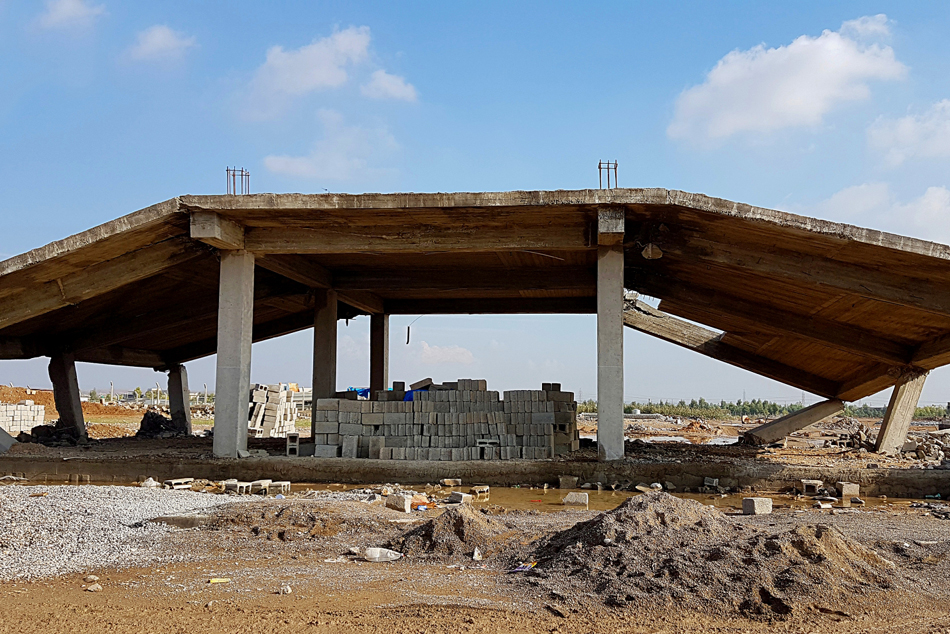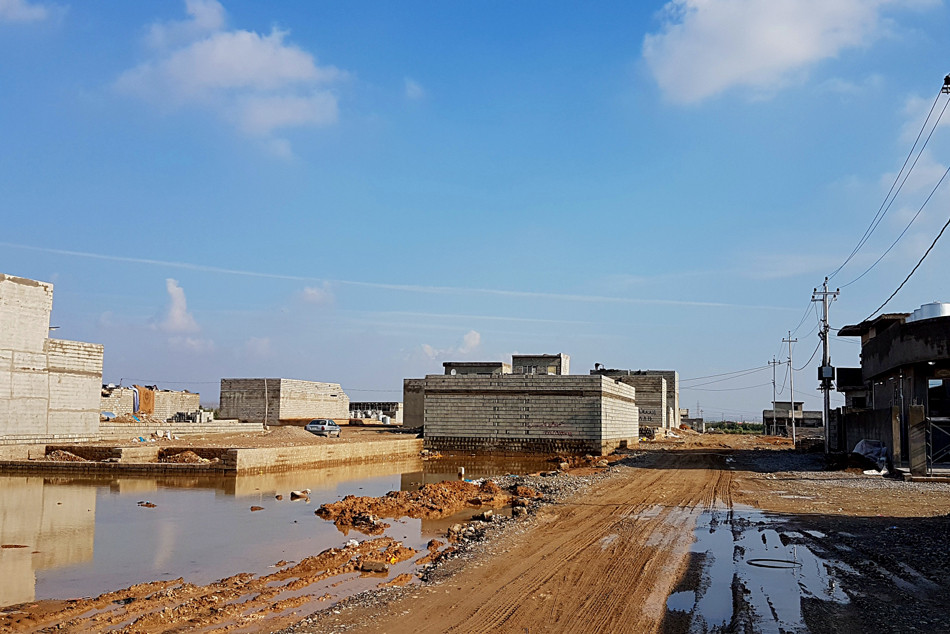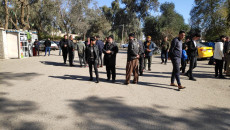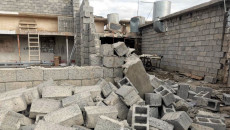Residents of houses illegally built in several neighborhoods of Kirkuk Northern Province ask for water supply, sewage system and paving the streets halted by Iraqi ministry of planning.
Following fall of Saddam regime in 2003, people expelled from the oil rich city have received plots of lands from the Kurdish parties ruling the region without being officially registered or permitted by local authorities.
Kirkuk administration provided basic services to some of the blocs but later it was stopped by Iraqi government. The local authorities gave notice of evacuation to the residents whom declined to leave unless compensated.
Mohammed Hakim a resident of Barutkhana bloc said there is no sewage and the alleys not paved by asphalt. "Once it is raining, mud is everywhere and becomes difficult to commute. In summer it is very dusty. We are obliged to endure such a life."
"Once it is raining, everywhere becomes muddy and difficult to commute. In summer it is very dusty. We are obliged to endure such a life."
Mohammed and thousands of families under Ba'ath party in the 1970s and 80s were expelled from Kirkuk under "Arabisation" demographic campaign and were replaced with Arabs.
The multi-ethnicity province of Kirkuk, 240 km north of Baghdad, is Iraq’s 5th largest with an estimated population of 900,000 Kurds, Arabs, and Turkmens.
It is one of the main disputed areas in addition to Diyalah and Nineveh that a three-stage process outlined in Article 140 of the Iraqi constitution in 2005, stipulating normalization, a population census and a referendum on the status of the territories, was drawn to put an end to Kurdistan region government KRG and Iraqi Federal government dispute over these areas.
Kurdish parties were ruling Kirkuk and most of the disputed territories till 2017 when Iraqi army ousted Kurdish Peshmarga, following a referendum by the KRG voted for independence of the Kurdish region in Iraq including Iraq.
Hemin Hassan lives in Panja Ali bloc, in a house built without official permission. "There is no network of water supply. Some people as a charity dug water wells and have extended it to our houses by plastic hose."
"There is no network of water supply. Some people as a charity dug water wells and have extended it to our houses by plastic hose."
The first stage of compensation was supposed to give 10m Iraqi Dinar IQD ($8,000) and a plot of land to build a house but none of it has been officially registered so far.
The teams of anti-violation on government real estate supported by security forces and Kirkuk municipality vehicles end of February launched a campaign for cleaning the area Inzibatkhana bloc of houses built on government lands without permission.
Earlier, Kirkuk local authorities decided to launch campaigns to impose law and put an end to these trespass on government properties in Musayaja, celebration square and Panja Ali but all were suspended temporarily due to the complicated texture of Kirkuk community.

A building without permission south east of Kirkuk destructed in November 2018. Photo by KirkukNow.
Kirkuk administration has funded projects of water supply and paving streets in Faylaq (Kurdistan) bloc and Panja Ali out of Petrodollar allocation, a special fund from Baghdad to oil producing provinces. The funding was stopped and projects did not cover all neighborhoods.
Faraidoon Adel, head of Kirkuk municipality, said Iraqi ministry of planning halted projects for these neighborhoods because it is not registered and built illegally. "It is the task of Kirkuk MPs to revoke this order."
End of 2019, Iraqi parliament dissolved provincial councils and tasked Mps to monitor local administrations till next provincial council election. Kirkuk MPs declined to talk to KirkukNow in the excuse of involvement in the heat debate over draft bills for 2021 national budget and federal court.
Head of Kirkuk municipality said Kirkuk master plan includes services of water, sewage, streets and kindergarten for these blocs once order of Baghdad is revoked.
"Kirkuk master plan includes services of water, sewage, streets and kindergarten for these blocs once order of Baghdad is revoked."
Other blocs built without permission in Kirkuk are Shoraw, Sonaguli, Darwaza, Cornich, Baghdad Highway and Rahimawa. Iraqi council of ministers in November 2019 decided to register illegally built houses all over Iraq for its residents whom to pay for the land in 20year installment yet it has not been practically implemented.







